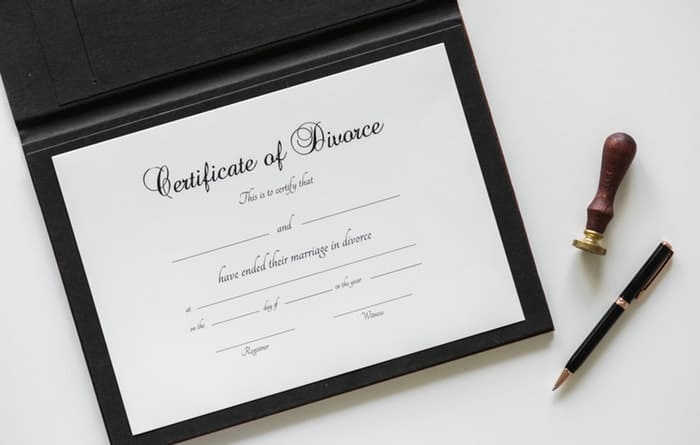LPA and Will Writing for Divorce: Identifying the Differences

An LPA or a Lasting Power of Attorney can make decisions and act on a person’s behalf when they fail to make their own decisions because of losing their mental capacity. Thus, it is very important to choose a Donee with great caution.
An LPA and Will Writing for Divorce is Essential for Your Future
LPA or lasting power of attorney enables a person to plan well in advance by appointing someone. This is also referred to as a Donee. An LPA can manage their clients’ welfare and finance, in case the latter becomes incapacitated all of a sudden.
In Singapore, an LPA or Lasting Power of Attorney is basically a legal document, which enables a person to appoint an attorney or a Donee they can rely upon for making decisions about their property, money, or welfare on their behalf when their mental capacity is compromised.
No one likes to think about death, let alone talk about these issues with their respective spouses.
At the same time, as parents, it is imperative to contemplate about such an inevitable reality as they owe such action to their children.
When there is a proper will in place, a person can be completely certain that their partners and kids will get what is theirs rightfully. On the other hand, there can be a tremendous frustration for the survivors of the deceased people when a will is.
LPA Types
It is imperative to note at this point out at this juncture that a Lasting Power of Attorney is of two types. The first type is pertaining to the financial affairs and property of the donor. It is a type of LPA that can, for instance, enable the attorney to settle the bills of the donor, operate the latter’s bank accounts, and sell their properties.
The second kind of Lasting Power of Attorney has the authority pertaining to the welfare and health of the donor. They can take a call on the medical treatment of the donor. However, such an attorney is not allowed to take calls on treatment for life-threatening diseases until the donor allows it in the LPA specifically. Such an attorney is also allowed for making decisions related to the diet of the donor, how they utilize their time and the diet of the donor.
Reasons to Opt for a Lasting Power of Attorney
Not many people would accept that there is a high degree of uncertainty and insecurity in life. Hence, it is actually a sensible decision to hire LPA or will writing services rather than facing troubles and stress. Unexpectedly, a person can lose their mental capability through illness, accident, or any other circumstances. As such, they are not able to make important decisions for themselves, manage their properties or operate the bank accounts.
Instead, there is a chance for a person to plan ahead and opt for an LPA as per the Mental Capacity Act for appointing an “Attorney” or a “Donee” they trust. For instance, it can be their daughter, son, or wife. You can also appoint anyone who can manage your personal welfare or financial matters during the course of your mental incapacity. So, if a person loses their mental capacity without an LPA, the family can go through an expensive and lengthy ordeal of submitting an application to appoint deputies or deputy under the Mental Capacity Act.
Importance of Having a Donee
If you are wondering the importance of a Lasting Power of Attorney donee(s), there are various reasons for doing so. An LPA can prepare you to be ready for any untoward situation when you do not have the required mental capacity for decision-making. If that happens, you or your appointed donee(s) are able to and prepared to cope up even in adverse circumstances. Thus, not only are your interests safeguarded but the troubles and stress of your dear ones can be also minimized in case there is a loss in your mental capacity.
Things to Consider for Your Donee
You need to choose your donee or donees very cautiously. Select somebody with a high degree of competence so that you can rely upon completely to make decisions on behalf of you when you cannot do so on your own. It is also possible to appoint multiple donees. However, in such a scenario, ensure that all these donees are able to work together in harmony. It is imperative for your chosen individual or people to give their agreement to such an appointment and sign in the LPA to act as your donee or donee(s).
Severally or jointly
If you plan to appoint multiple donees, you can appoint these people to function jointly. It signifies that these donees need to function together and they can make decisions for you separately or together. At the same time, it is better not to make an appointment for too many donees. The reason is when you appoint too many of them, there can be chaos. People are in a dilemma of which donee to approach and take help from. As a result, decision-making can be less efficient and effective. This is because it may be tough for your donees to arrive at a consensus on specific issues.
Criteria for Eligibility
According to the Mental Capacity Act, an appointed donee should be a minimum of 21-year-old with proper mental capacity. He or she should be identifiable by a proper name. A donee(s) can handle and help in both or either decision pertaining to your property affairs and property and personal welfare. The appointed donee for decision-making assistance about their client’s welfare cannot be an organization and has to be an individual. On the other hand, the donee appointed for decision making about property-related matters and affairs can be an individual. However, they should not be bankrupt or even a properly licensed trust company according to the definition in the Trust Companies Act.
Reasons to Make a Will
If you are a parent, you must make a will to ensure that you are provisioning for your children in case something unpleasant happens to you. After all, it is natural for all people to be present when their kids are growing. Eventually, they will become adults and reach a position where they can take care of themselves. At the same time, you need to be also ready to face the unexpected. Ensuring that when you face any unfortunate event, you have made the essential arrangements for your beneficiaries.
In case you are either a parent-to-be or have newly become a parent and have not yet made a will, it is time that you give the prospect some serious considerations to it. You need to do the following in your will:
- Legal guardian for taking care of your kids in case you pass away prior to them becoming adults;
- Two executors who will be distributing your properties and other assets and managing your entire state of affairs
- A trustee to manage all your assets until your offspring becomes an adult.
When you make a valid will before dying, uncertainties of any kind pertaining to your assets can be eliminated in case you pass away.
Here are some of the important points to consider while making a will of your own:
Marriage Can Make a Will Invalid
In the event of you getting married again, any Will you made before the marriage will be null and void.
The reason for this is that Singapore’s Wills Act enables the entitlement of a newly wedded spouse to get a share of the properties of their spouse in case the latter passes away.
So, if you got married, it is imperative to prepare a new Will for including any other beneficiaries apart from your spouse. This is only if you intend them to get a portion of your assets.
Ways of Creating a Will
While making a Will, one has to mention who their beneficiaries would be. These beneficiaries could be the spouse, kids, or even a charity organization. So, in case you are creating a will, it is imperative for you to jot down the necessary financial entries. These include an entire list of all your assets, liabilities, and the parts you will distribute. Never forget the way in which you would prefer to distribution these belongings.
A minimum of one executor needs to be appointed along with a trustee or managing the distribution of your assets after your death. You could prefer to have both. When you are appointing an executor, make sure you choose someone you can trust completely. When your beneficiaries are below the age of twenty-one, there should be ideally two executors.
In order to ensure the legal validity and effectiveness of your Will, you can get in touch with a good advocate/lawyer. He or she can give you the necessary advise and make a Will for you. The document should include any other relevant and necessary provisions.
Once all these above steps have been completed, it is now time to put your signature on the Will. You should do this after checking all its contents. Also, make sure that your signature appears on the Will. The procedure should have two witnesses who have to present physically and cannot be named as beneficiaries in your Will. You need to also ensure that none of these witnesses is your spouse.
In case you plan to amend or change your Will at a later point, you need to prepare either a Supplementary Will or Codicil or a fresh Will. In fact, to be always on the safer side, it is always better to approach a good lawyer.
A Will Does Not Get Revoked by a Divorce
It can be an extremely painful and strenuous process to go through a divorce. In order to stay away from any kind of further complexities pertaining to your financial affairs, you must conduct will writing for divorce.
First of all, you need to realize that your Will is not revoked when you get a divorce. Effectively you can conduct a will writing for divorce even if these instances happen. Through this, you can give away your assets to the ex-spouse in the event of your death.
When an estranged couple is undergoing the process of legal separation, the law recognizes them as legally married under the act of the Intestate Succession. As such the estranged spouse is still eligible to inherit half of your estate. The portion inherited by your estranged spouse can even be more in comparison to the estate inherited by your kids and parents.
Plus, a majority of the couples in Singapore regard their matrimonial house as joint tenants. Under the scope of the right of survivorship, the other spouse can inherit the entire property when the other spouse passes away.
Whatever the case, will writing for divorce is extremely important. When a Will has been already made by you previously, now is the time for you to review the same. It’s necessary to appoint a proper executor to ensure proper distribution in your assets according to your desires. A trustee needs to be also appointed to take care of your kids in case something unfortunate occurs to you.










